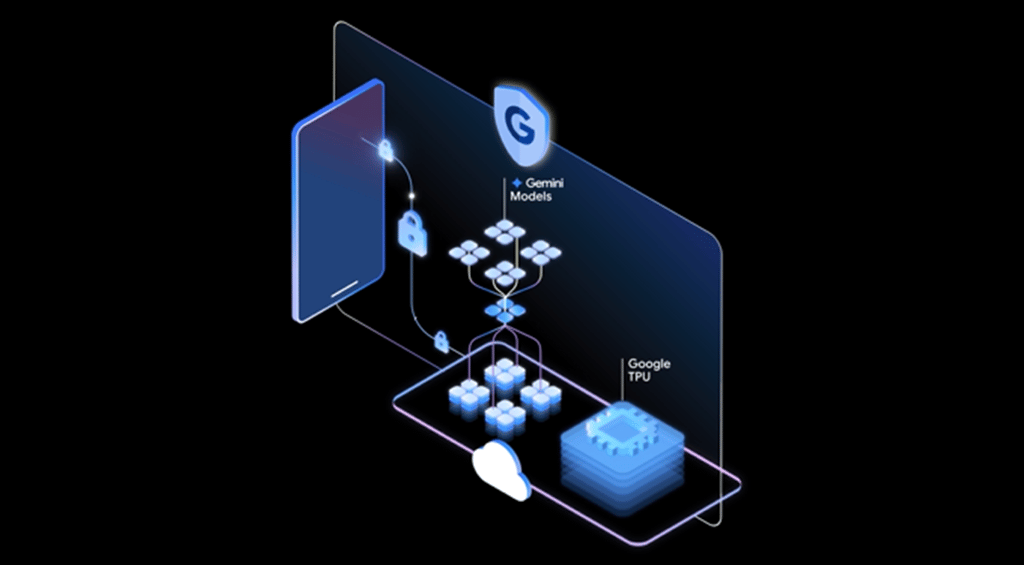The recent Google Next event in San Francisco offered no big news, no splashy announcements of bold initiatives. But the presentation at the intimate Warfield Music Hall did showcase a cloud provider very invested in aggressively growing its business.
Clearly, Google Cloud Platform (GCP) is one of the Big Three, with AWS and Microsoft’s Azure. While it lags the other two top cloud competitors, it has an even chance – long term – to be the dominant player. Cloud, after all, is really about the network, and Google has as extensive a global network as any of the top competitors. And certainly Google has the vast resources to compete on an international scale.
Cloud Storage and Backup Benefits
Protecting your company’s data is critical. Cloud storage with automated backup is scalable, flexible and provides peace of mind. Cobalt Iron’s enterprise-grade backup and recovery solution is known for its hands-free automation and reliability, at a lower cost. Cloud backup that just works.
SCHEDULE FREE CONSULT/DEMO
After the stage presentation, two Google cloud executives and a handful of Google cloud customers – including execs from Snapchat and PwC – answered questions from reporters. Present were Carl Schachter, VP of Global Markets for GCP, and Brian Stevens, VP of Product for GCP. Apart from a general sales pitch, the most interesting points from the press conference were:
What’s Up With Cloud Support?
A reporter said that he hears customers ask about Google’s support for its cloud customers. Is it sufficient? Can a big company get all its cloud challenges addressed?
“We’re doing a lot of things that, perhaps, we weren’t doing a couple of years ago,” said Schachter. Sure, there’s the “low touch” model for developers who just want to sign up and tinker. But beyond that is tiered levels of support, including platinum support with dedicated reps. The point: enterprise customers at a given support level “would be able to call up and get someone to help work with them,” he said.
I followed up with a question that referenced the recent Gartner Magic Quadrant, which criticized Google Cloud by saying that it is “still in the rudimentary stages of learning to engage with enterprise and mid-market customers.”
Schachter responded: “Gartner obviously published their data based on information they got, so I’m not going to argue with it. I think we’re constantly striving to improve. The resources we have today are not the same resources we had a few years ago. So, we’re continuing to invest in that. One of the things I was hoping to convey today…is that we have a commitment to this.”

Google VP Carl Schachter at Google Next
Brian Stevens added: “I’ve been doing this with Google for 12 months now. And I think hearing that [criticism] 12 months ago I probably would have gone, well, maybe. Now I think that’s changed. I think the conversation that we’re having in the enterprise space, and the investments that Google has made in the alliance with the people you see [the clients], are absolutely paying off.”
Google Cloud is “getting into specific use cases for big enterprises,” Stevens said. “And the conversation, while initially was ‘you’ve got to sell me on Google,’ is now: ‘How can we make that work and how can we use that platform to do things differently?’ So I wouldn’t say we’ve totally reached a tipping point, but I think we’re pretty close.”
The Cloud Price War: Not What It Seems
A reporter from Bloomberg noted that the fierce price war between Google, AWS and Microsoft seems to have leveled off – we see fewer headlines about price cuts. “And maybe I’m wrong, but is it cooling off? Is Google okay with pricing now?”
Brian Stevens: “Our [pricing] is, to be honest, completely driven by measurable infrastructure improvements. So the numbers that you’re seeing aren’t even looking at the competition. They’re looking at the efficiencies. We actually can cost out all of our ongoing infrastructure for our platform, which we actually charge back to the group.”
Efficiencies could come from “deploying different servers that are lower cost, but it also comes from our network management, disc technologies that we use, even some of our operational things, all that is sort of built in on our cost for our own platform. So as we change, we know from P&Ls from every product level what that costs. And as that changes we pass that back on.”
To me, that seemed hard to believe – all the cloud vendors’ price cuts seem market driven, to remain competitive. So I asked Stevens: Google’s price cuts were entirely driven by internal concerns, and not market competition?
“That’s right – 100 percent,” he said. “We actually modeled those. We built our plans for next year. We have a set of goals around infrastructure efficiencies that we’re going to drive next year as well.”
“Those are mapped right back into further and further discounts,” he said. “So the model, for us, will continue.”
Hmmm. I’m definitely hearing that as “further price cuts.” It’s getting ever tougher to be a cloud provider. Remarkably deep pockets are required to remain competitive.
Docker And Rocket (Does Docker Have a Business Model?)
The Google execs were – no surprise – highly positive about Docker container technology. Carl Schachter praised Docker’s ability to create “mobility of apps across infrastructure.” And he touted Kubernetes, Google’s own container orchestration system, as a kind of “lubricating oil, allowing containers to actually help make [infrastructure mobility] happen.”
As he described it, container technology is now impacting cloud adoption. “We’re seeing large scale enterprises that are moving container first, before they even move to private cloud,” Shachter said. “And doing that with Kubernetes. They’re going to get there quicker, the workload is going to be portable and we’re going to have a really consistent experience.”
I asked about the Docker alternative, Rocket, which was launched by CoreOS last December. Will Rocket be a serious competitor a few years down the road?
“We think that competition at the container spec level is a healthy thing, to be honest,” said Brian Stevens. “And yes, if there’s a couple competing container specs, it’s not a problem because they’ll all plug right in, in a layer that will be insulated from it, right? A little difference in the container specs won’t matter.”
He continued: “But at the end of the day we think that there will be significant inertia around a single container spec, and that one doesn’t quite exist yet. Docker’s got to pivot slightly to take on some of the Rocket concepts, but once it does I think that’s when it becomes a more industry neutral container spec.”
One of the reporters angled for a hint about whether Google would acquire Docker. Speculation about which company (if any) will snap up Docker is a popular parlor game among tech observers.
The Google execs, after some back and forth, refused to take the bait. The most interesting part of the exchange occurred as people talked about how Docker – if it’s not acquired – actually makes money.
Tellingly, no one seemed to have a clue about Docker’s revenue source. As Stevens said, “I don’t know what their business model is.”
Given that Docker’s revenue picture is so cloudy, it seems the “who will buy them” game will continue indefinitely. Should be interesting.
For future Google Next events in cities around the world – or to watch a live stream of the events – here’s the homepage.
-
Ethics and Artificial Intelligence: Driving Greater Equality
FEATURE | By James Maguire,
December 16, 2020
-
AI vs. Machine Learning vs. Deep Learning
FEATURE | By Cynthia Harvey,
December 11, 2020
-
Huawei’s AI Update: Things Are Moving Faster Than We Think
FEATURE | By Rob Enderle,
December 04, 2020
-
Keeping Machine Learning Algorithms Honest in the ‘Ethics-First’ Era
ARTIFICIAL INTELLIGENCE | By Guest Author,
November 18, 2020
-
Key Trends in Chatbots and RPA
FEATURE | By Guest Author,
November 10, 2020
-
Top 10 AIOps Companies
FEATURE | By Samuel Greengard,
November 05, 2020
-
What is Text Analysis?
ARTIFICIAL INTELLIGENCE | By Guest Author,
November 02, 2020
-
How Intel’s Work With Autonomous Cars Could Redefine General Purpose AI
ARTIFICIAL INTELLIGENCE | By Rob Enderle,
October 29, 2020
-
Dell Technologies World: Weaving Together Human And Machine Interaction For AI And Robotics
ARTIFICIAL INTELLIGENCE | By Rob Enderle,
October 23, 2020
-
The Super Moderator, or How IBM Project Debater Could Save Social Media
FEATURE | By Rob Enderle,
October 16, 2020
-
Top 10 Chatbot Platforms
FEATURE | By Cynthia Harvey,
October 07, 2020
-
Finding a Career Path in AI
ARTIFICIAL INTELLIGENCE | By Guest Author,
October 05, 2020
-
CIOs Discuss the Promise of AI and Data Science
FEATURE | By Guest Author,
September 25, 2020
-
Microsoft Is Building An AI Product That Could Predict The Future
FEATURE | By Rob Enderle,
September 25, 2020
-
Top 10 Machine Learning Companies 2021
FEATURE | By Cynthia Harvey,
September 22, 2020
-
NVIDIA and ARM: Massively Changing The AI Landscape
ARTIFICIAL INTELLIGENCE | By Rob Enderle,
September 18, 2020
-
Continuous Intelligence: Expert Discussion [Video and Podcast]
ARTIFICIAL INTELLIGENCE | By James Maguire,
September 14, 2020
-
Artificial Intelligence: Governance and Ethics [Video]
ARTIFICIAL INTELLIGENCE | By James Maguire,
September 13, 2020
-
IBM Watson At The US Open: Showcasing The Power Of A Mature Enterprise-Class AI
FEATURE | By Rob Enderle,
September 11, 2020
-
Artificial Intelligence: Perception vs. Reality
FEATURE | By James Maguire,
September 09, 2020
SEE ALL
CLOUD ARTICLES










